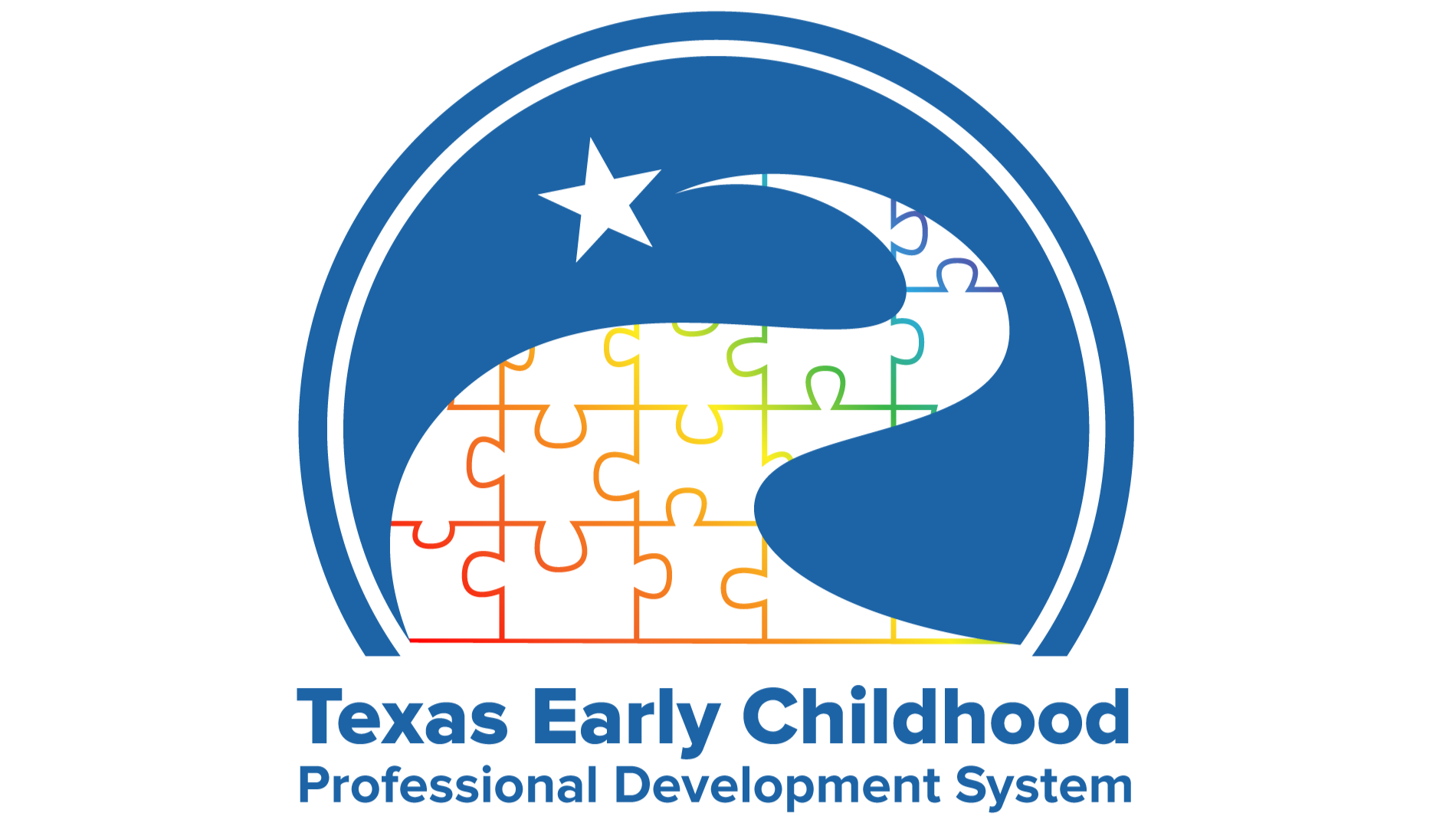Training is important in any workplace, but it’s absolutely essential when working with children. The types of training that ELP employees participate in set them up for success before the first child arrives at the school. As programs reflect on and set quality improvement goals, administrators can support staff with creating individualized training plans that will help them achieve those goals. Although some training topics are required, there are opportunities to pursue topics of interest. The administrative team’s plans should include leadership skill building. Child Care Regulation (CCR) outlines the minimum standards of training hours that staff must complete each year, but Texas Rising Star requires a bit more. Your Texas Rising Star assessor will examine the training plans to determine whether they reflect appropriate training hours.
Stop and Reflect

What are your professional development and/or quality improvement goals for this year?
How do staff choose and document their professional development plan? How do they find professional development opportunities?
What support do you need from your Texas Rising Star mentor to create staff training plans with employees?
Define
Texas Rising Star has six measures related to staff training. Click the links to learn more about these measures.
-
- S-DQT-03: Director has an individualized plan in the director’s file that provides for a minimum of 24 clock hours of training on an annual basis, to include a minimum of six hours in program administration, management, and supervision. (school-age programs)
- S-DQT-04: Director has an individualized plan in the director’s file that provides for a minimum of 36 clock hours of training on an annual basis, to include a minimum of six hours in program administration, management, and supervision. (center-based programs)
- S-COTQ-01: Before beginning child care duties, all teaching staff members (to include volunteers substitutes, if applicable) receive documented in-person interactive orientation with the director/administrator to improve knowledge of the childcare operation, specific job responsibilities, and children’s needs.
- S-COTQ-03: An individualized plan provides for a minimum of 30 clock hours of child care-related training specific to the age of children in their care. All child care staff participates in training according to the approved plan. The training certificates align with the individualized written training plan. (center-based programs)
- S-COTQ-04: An individualized written training plan that contains 20 clock hours of training on an annual basis is in the teacher’s staff file. Of the 20 hours, a minimum of 12 hours needs to be in school-age development and curriculum. (school-age programs)
- S-COTQ-05: An individualized written training plan that contains 15 clock hours of training on an annual basis is in the teacher’s staff file. Of the 15 hours, a minimum of 10 hours needs to be in school-age development and curriculum. (school-age programs)
- S-COTQ-07: Primary staff has 36 hours of documented training, with a minimum of 12 clock hours of instructor-led training. (home-based programs)
- S-COTQ-08: If applicable, all staff members have 30 hours of documented training with a minimum of 12 clock hours of instructor-led training (not including director-led training). (home-based programs)
Learn

This sample plan shows a practitioner’s professional development goals and the trainings she has completed and plans to complete. Notice how there is alignment between her professional development goals and the trainings she completes.
Age group(s): Infant, Toddler, Preschool, School-ageResource Type: Example Document

This website offers a range of digital and print materials and resources related to child care training, including a number of online courses for child care professionals seeking to fulfill state-mandated training requirements. These resources will help early childhood professionals find and complete training hours needed as related to their role.
Age group(s): Infant, Toddler, PreschoolResource Type: Toolkit

This training was designed for use by early childhood administrators. These competencies represent the range of knowledge and observable skills needed to effectively manage early childhood programs. They are intended to serve as a guide to those interested in acquiring a better understanding of the scope of responsibilities associated with early childhood program administration.
Age group(s): Infant, Toddler, PreschoolResource Type: Online Course

Core competencies refer to specific, basic concepts, skills, and abilities that early childhood professionals should learn, understand, and be able to demonstrate. This training was designed for use by early childhood professionals to improve the quality of care and education young children receive. (9.5 hours)
Age group(s): Infant, Toddler, PreschoolResource Type: Online Course

The career pathway relates a professional’s training hours, education, work experience, and other factors to a position on the career pathway, from entry-level to expertise in the early childhood field. The Texas ECE Career Pathways support those who identify as Practitioners, Administrators, Trainers, and Coaches.
Age group(s): Infant, Toddler, PreschoolResource Type: Guide
Practice and Improve

Use of this reflective document will support staff in identifying which future training topics (aligned with the Texas Core Competencies) would be beneficial to their professional development. This document should be used in tandem with the staff’s Annual Professional Development/Training Plan.
Age group(s): Infant, Toddler, Preschool, School-ageResource Type: Guide

This is an example of a Professional Development Profile Report for Administrators and Practitioners from TECPDS. This report can be used to analyze staff education, experience, and training to ensure staff are meeting requirements for training hours and topics. The report can also help inform staff training plans if some training topics have less coverage than others.
Age group(s): Infant, Toddler, Preschool, School-ageResource Type: Example Document

This self-assessment is designed for Administrators: early childhood professionals who are responsible for planning, managing, implementing, and evaluating early childhood programs. When selecting professional development opportunities, look for conferences and sessions aligned with the professional development plan to meet your goals.
Age group(s): Infant, Toddler, Preschool, School-ageResource Type: Assessment

Early childhood practitioners complete many hours of professional development each year to support their professional growth in child skill development and instructional practices, and to meet state guidelines. When selecting your next professional development opportunity, look for conferences and sessions aligned to the professional development plan to meet your goals!
Age group(s): Infant, Toddler, Preschool, School-ageResource Type: Assessment

Before beginning child care duties, all teaching staff members receive documented in-person interactive orientation with the director/administrator to improve knowledge of the childcare operation, specific job responsibilities, and children’s needs. Here is a sample document that provides evidence that this onboarding has taken place. This documentation should remain in the teacher’s staff file.
Age group(s): Infant, Toddler, Preschool, School-ageResource Type: Example Document

This template is an effortless way to document staff members’ professional development goals and training opportunities. Training opportunities should help the practitioner meet their goals while also meeting minimum requirements for clock hours and training topics.
Age group(s): Infant, Toddler, Preschool, School-ageResource Type: Template

Create and update your professional development profile, review staff profile reports, and plan professional development for your center/facility. Anyone who works with children birth to age 8 can register for a TECPDS account, regardless of their role or the sector in which they work. If you work with young children and would like a personal account where you can keep track of your professional development, create an account today!
Age group(s): Infant, Toddler, Preschool, School-ageResource Type: Guide
